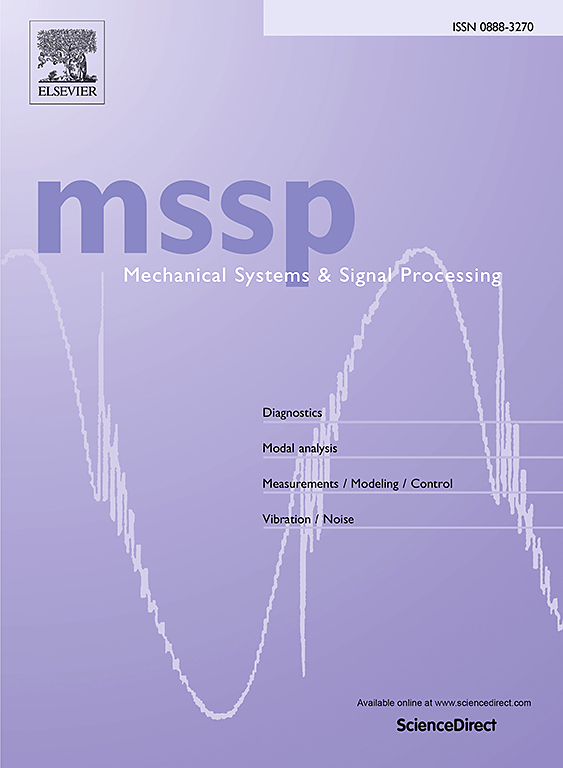Sculpt wave propagation in 3D woodpile architecture through vibrational mode coupling
IF 7.9
1区 工程技术
Q1 ENGINEERING, MECHANICAL
引用次数: 0
Abstract
A novel approach to metamaterial design is introduced through the development of a stable 3D woodpile structure composed of slender cylindrical beams. These beam elements possess diverse bending vibration modes, intricately coupled with propagating waves, leading to complex wave dynamics within the structure. For the efficient analysis of various architectures, an extended discrete element model (DEM) is introduced to accurately emulate the local resonance caused by the beam’s bending vibration modes. The high level of accuracy achieved by the DEM is attributed to the utilization of a physics-informed discrete element modeling approach, rooted in continuum beam theory and wave dynamics within periodic structures. Utilizing the extended DEM, the interplay between propagating waves and local resonance within the beams is investigated, and the adjustability of mode coupling is confirmed by altering the interacting positions of neighboring beams. Subsequent to this, a graded 3D woodpile architecture is designed to progressively superimpose multiple frequency band structures. By adjusting mode coupling, it is shown that the graded woodpile is capable of displaying either a broad frequency passband or a broad frequency bandgap. Further demonstration reveals that the broad frequency bandgap facilitates high-frequency filtering, which effectively attenuates impact waves without the need for additional damping. The stable 3D woodpile architecture proposed in this study shows great potential for practical applications in vibration filtering and impact mitigation across various domains, ranging from small-scale material design to large-scale constructions.通过振动模式耦合实现三维木桩结构中的雕刻波传播
通过开发由细长圆柱梁组成的稳定三维木桩结构,引入了一种新颖的超材料设计方法。这些梁元素具有多种弯曲振动模式,与传播波错综复杂地耦合在一起,导致结构内部产生复杂的波动力学。为了对各种结构进行有效分析,我们引入了扩展离散元素模型(DEM),以精确模拟由梁的弯曲振动模式引起的局部共振。DEM 所达到的高精度水平归功于以连续梁理论和周期性结构内的波动力学为基础的物理信息离散元素建模方法。利用扩展的 DEM,研究了传播波和梁内局部共振之间的相互作用,并通过改变相邻梁的相互作用位置,确认了模式耦合的可调节性。随后,设计了一种分级三维木桩结构,以逐步叠加多个频段结构。通过调整模式耦合,证明分级木桩能够显示宽频通带或宽频带隙。进一步的演示表明,宽频带隙有利于高频滤波,从而有效地衰减冲击波,而无需额外的阻尼。本研究中提出的稳定三维木桩结构在振动滤波和冲击减缓的实际应用中显示出巨大的潜力,可应用于从小型材料设计到大型建筑等各个领域。
本文章由计算机程序翻译,如有差异,请以英文原文为准。
求助全文
约1分钟内获得全文
求助全文
来源期刊

Mechanical Systems and Signal Processing
工程技术-工程:机械
CiteScore
14.80
自引率
13.10%
发文量
1183
审稿时长
5.4 months
期刊介绍:
Journal Name: Mechanical Systems and Signal Processing (MSSP)
Interdisciplinary Focus:
Mechanical, Aerospace, and Civil Engineering
Purpose:Reporting scientific advancements of the highest quality
Arising from new techniques in sensing, instrumentation, signal processing, modelling, and control of dynamic systems
 求助内容:
求助内容: 应助结果提醒方式:
应助结果提醒方式:


